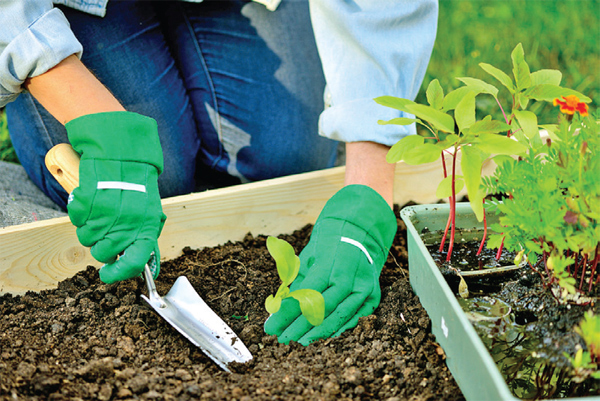Getting Started on Organic Gardening
More and extra humans are moving into natural gardening due to the fact it's miles extra environment-friendly, extra healthy, a splendid activity and might assist them store cash with the aid of using having all of the plants they want withinside the backyard. If you're one of these those who are making plans to have their very own natural garden, right here are a few beneficial recommendations for you:
1. Decide the plants which you need. Since you're into natural gardening, it's miles first-rate to in case you begin with seeds first. Today, there are such a lot of to be had seeds in maximum groceries and markets. But, you can not simply clutch a % of seeds with out thinking about if it's going to develop on your environment. For starters, it's miles first-rate to stay with veggies and beans to attempt what's proper on your webweb page circumstance. Once you've got got decided which might be the flora proper for the circumstance of your webweb page, then you should buy different seeds which you need to develop.
2. Prepare the right bins. In natural gardening, there's no want for luxurious and unique bins. As lengthy as those are tapered, then it'd do your plant good. When making a decision to enter natural gardening, test out your kitchen first. If you could locate vintage yogurt bins, empty juice and milk cartons, tubes of potato chips, cans of sauces and juices, and barely broken pails or dipper, you could easy then up and begin filling them with clay and different natural count number to put together for seed planting.
If you don`t have any of the cited bins, you could constantly purchase withinside the nearest grocery store nut make certain that those have tapered aspects so the crop can effortlessly slip out. Aside from bins which might be at the least three inches deep, different field alternatives for you encompass apartments or shallow trays however those aren't really useful in case you plan to plant or extra styles of flora due to the fact the roots can be tangled and might cause the demise of the crop.
Make positive that the bins are thoroughly wiped clean the usage of lukewarm water dashed with chlorine bleach to make certain that the germs are killed inside. After washing, depart it at the outside to allow it dry. (TIP: If you could allow it dry immediately below the sun, it will likely be first-rate due to the fact all of the residues might be removed.)
three. Be positive to have geared up packets of planting mix. Planting mixes assist seeds to sprout thoroughly this is why you must constantly have more packets on your natural gardening. It is first-rate in case you use planting mixes which might be sterile due to the fact they're secure on your flora and for you as well.
4. Label every field properly. Since seeds appearance alike once they sprout, it's miles first-rate if all of the bins are classified properly. Aside from making it smooth which will discover that is which, labeling is likewise important to keep away from planting the equal seed over again.





